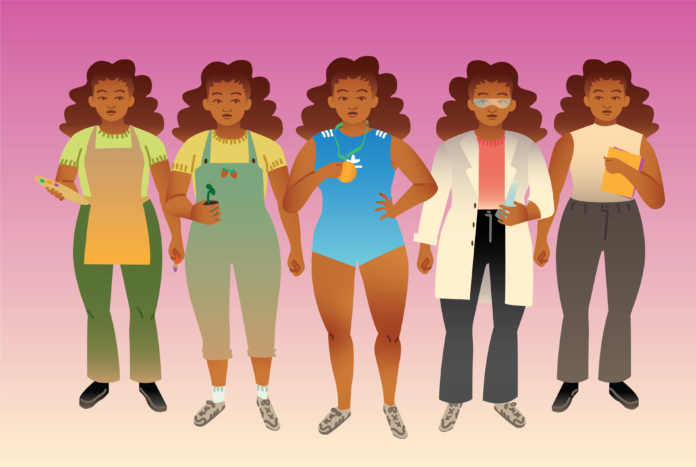Spotlighting UC Davis athletes and their goals off the field
By MI’ZAUNI REESE — sports@theaggie.org
With UC Davis boasting an extensive Division I athletics program, it’s easy for Aggie fans to forget that athletes have lives outside of the locker room. Many Davis athletes participate in all facets of campus life; whether it be working at the CoHo or leading student governing bodies, these players are dedicated to making the most of their university experience.
Jeremiah Chukwudobe, a fifth-year political science major playing for our football team, finds himself deeply immersed in the Davis community as a leader of Athletes in Action, an organization set to spread the principles of Christianity. Jeremiah got involved during his first year at Davis and became more rooted in the organization as years went on.
Through Athletes in Action, Jeremiah has become a community leader in bridging the gap between differing athletic teams, as well as an “emotional rock” for many athletes on various teams, as he spreads the word of God. His passion for religion is more than biblical, as he describes his community work as a lifestyle, more so than a religion. Chukwudobe described “love” as the principle he pushes for the most.
“God says love covers a multitude of sins,” Chukwudobe said. “With rumors of war and everything going on, there has been a lack of love in the world. I hope that if I can leave seeds of love, they can spread and grow and make the world a better place, little by little.”
Kaitlyn Lyle is a fourth-year psychology major and mental health advocate. Lyle has been representing the UC Davis gymnastics team in both bar and beam events. Lyle is profoundly invested in promoting and supporting student-athlete mental health, as it far too often pushed to the back burner for many athletes while they juggle class, sports and other extracurriculars.
As an active member of Athletes for Hope, a non-profit advocating for student-athlete mental health, she is essential in the creation of curriculum and protocols for the prevention and normalization of mental health in athletics. She went on to describe what she thinks athletes need to focus on.
“You are not your accolades, you are human,” Lyle said as she urged athletes to open up the conversation about mental health. “Vulnerability is a superpower, not a weakness.”
She then explained how she finds the time and motivation to participate in Athletes for Hope, the on-campus Mental Health Student Athlete Resource Group and Asian/Pacific Islander Student Athlete Resource Group.
“My purpose lights my fire and my passion fuels it,” Lyle said. “What pushes me to excel is the potential impact I can make on the community and the possibility to create a better future.”
Lyle will hopefully soon formalize her work, as she works with Athletes for Hope to create a National Athlete Bill of Rights to protect athletes, especially their mental health. You can hear more about this on her podcast, “Athletes for Hope,” a platform for athletes to share their stories and experiences with mental health.
With a long-standing history of community service within the Los Angeles community, Alexys Ford now puts most of her efforts toward supporting the UC Davis Black Student Athletes. As a fifth-year psychology major and now a prominent leader of the track and field team, Ford allocates time to hold a position as a board member of the Coalition for African Diaspora Student Athletes (CADSA).
The purpose of CADSA and the work she does is to bridge the gap between CADSA organizations/resources and the Black athletes on campus. She described the overarching goal as being to create a safe space in which Black athletes feel welcomed, supported and validated.
Her work is self-defined as “…advocating for Black student athletes while they strive to overcome the unique set of challenges that we face as athletes and students at predominantly White institutions.” This activism remains close to her heart.
Ford continued to talk about her impactful work and her mission with CADSA.
“This work impacts me a lot because I see firsthand these disadvantages or lack of attention we are receiving as African American student athletes,” Ford said. “I want to help other people like me, who feel like their voice isn’t heard.”
Overall, the bridge between being an athlete and a student at UC Davis has never been so complicated and impactful. It is important to remember the significant contributions these athletes make to the Davis community even if it does not involve applying their sport expertise. Although we acknowledged only a few of our university’s athletes who play a bigger part in our community, all of the athletes are more than just their role on the field.
Written by: Mi’Zauni Reese — sports@theaggie.org










